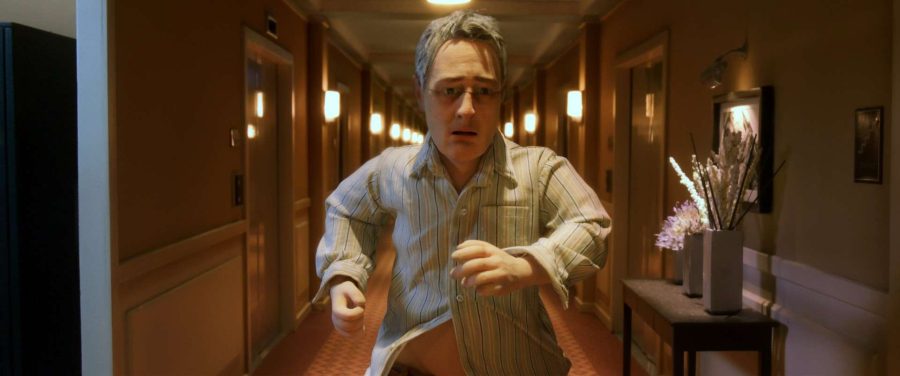“Anomalisa,” Kaufman’s stop-motion masterwork, jokes around with the human condition in a profoundly serious way.
Rating: 4.5/5.0
Directed by: Charlie Kaufman, Duke Johnson
Starring: David Thewlis, Jennifer Jason Leigh, Tom Noonan
Release Date: Dec. 30
A review of a Charlie Kaufman film usually starts by stating how awesome Charlie Kaufman is. People laud the originality of his scripts (“Adaptation,” “Being John Malkovich”), and complain about how ridiculously ambitious (but brilliant) his directorial debut was (“Synecdoche, New York”). But as much as this has become cliché, it’s impossible to do otherwise: Charlie Kaufman is awesome. Now we can start.
“Anomalisa” arrives seven years after Kaufman’s last effort (“Synecdoche”), but it’s a continuation, and a reworking, of a method that runs deep in his work—that of the literalization of the metaphor. In “Synecdoche” life is, literally, a stage; likewise “Malkovich” is about people, literally, getting into someone else’s head (another example is “Eternal Sunshine of the Spotless Mind” where memory is, again literally, erased). The trick is to seize a metaphor, or a popular saying, and transform it into the very reality of the film. This idea takes its most extreme version in “Anomalisa,” where the metaphor of the individual as a puppet reaches its logical conclusion: Human beings are, literally, puppets. What emerges marks a revolution in the beautiful, but previously limited, technique of stop-motion animation. The characters in “Anomalisa” are puppets that look like puppets: their faces are fragmented into visible segments and their bodies look awkwardly disproportionate. Here’s a case where form and content bleed into each other. The puppets’ aesthetic not only reinforces the concept, but in a fundamental sense, is the concept itself.
What’s remarkable about co-director Duke Johnson’s (“Marrying God”) animation is how natural it feels. The puppets’ movements and facial expressions are unmistakably human, or at least human enough to keep the film’s tone intact; a less nuanced animation could have turned “Anomalisa” into a laughable experience. Think about puppet sex. Picture a puppet masturbating in a hotel room. Ludicrous? Pathetic? Exploitative? Not with Johnson in the director’s seat. The sex scene is a thing of wonder. It’s raw and tender and, like the rest of the film, it’s deeply, deeply sad. It’s also beautiful though, and at the risk of making this review laughable, there’s at least a case to be made that no director has previously shot oral sex with that much emotion and love. In a year full of cinematic miracles (see “Max, Mad”), Johnson’s sex scene sits right at the top.
The story is simple. A motivational speaker (voiced by David Thewlis) suffering from severe depression travels to Cincinnati for a one-day conference. After a disastrous attempt to reconnect with an ex-girlfriend, he meets Lisa (the great Jennifer Jason Leigh), a shy, self-conscious woman who, in his eyes, is “obviously extraordinary.” Thewlis’s character knows (for reasons that shouldn’t be disclosed ) that she is his last hope — the only possible exit from his existential malaise.
Kaufman’s script is, well, Kaufmanesque: slapstick comedy is intermixed with painful moments of loneliness and alienation. The conflict between the comic and the serious is played out without any resolution; the final scene would be interpreted by many as cheerful, even hopeful, and by others as terribly depressing. What’s certain is that, once again, Kaufman has created a film that sets its own rules and exists in its own universe. Nietzsche famously wrote, “What then is truth? A mobile army of metaphors.” “Anomalisa” is a devastating film about a metaphor come true.














